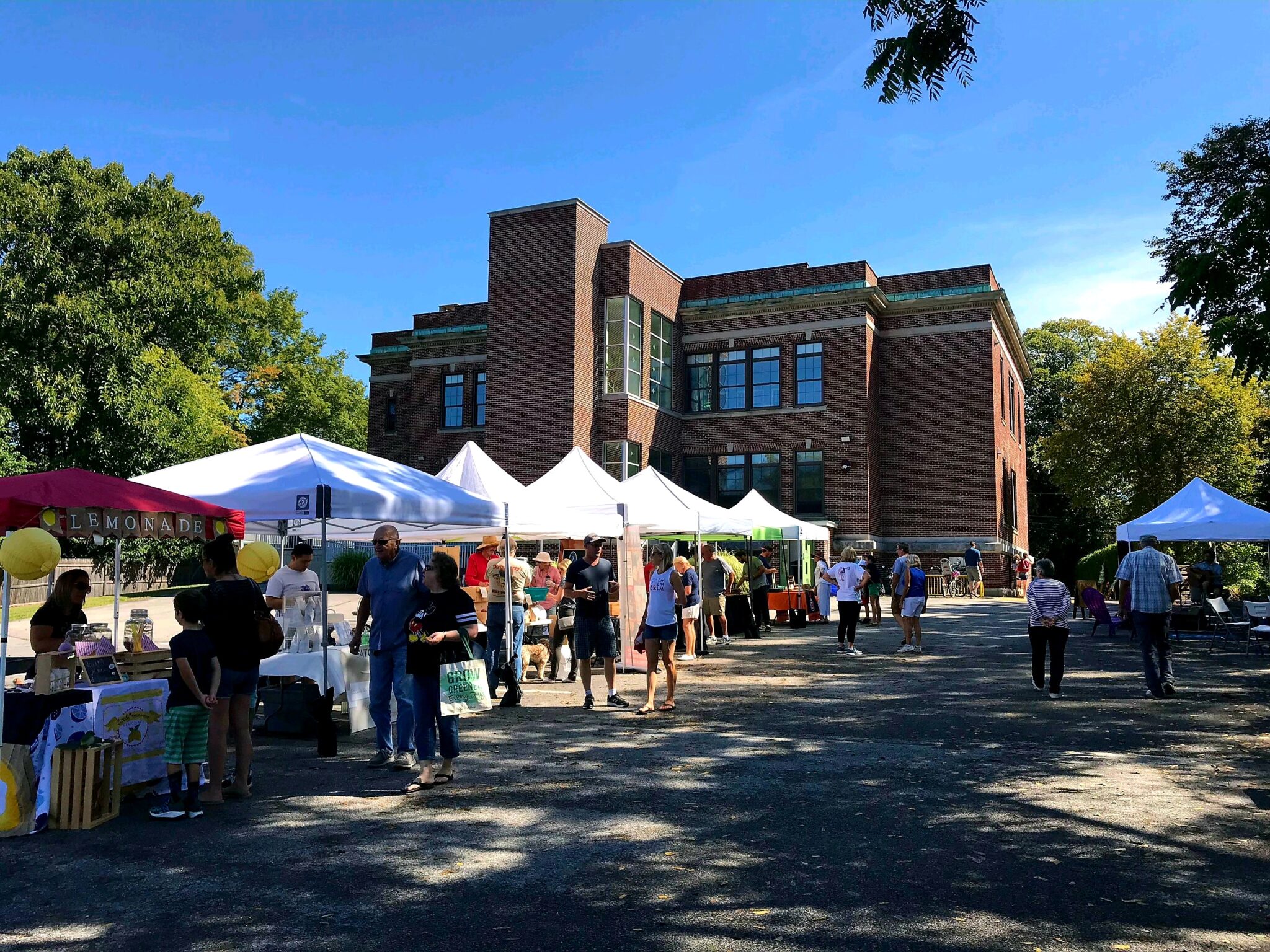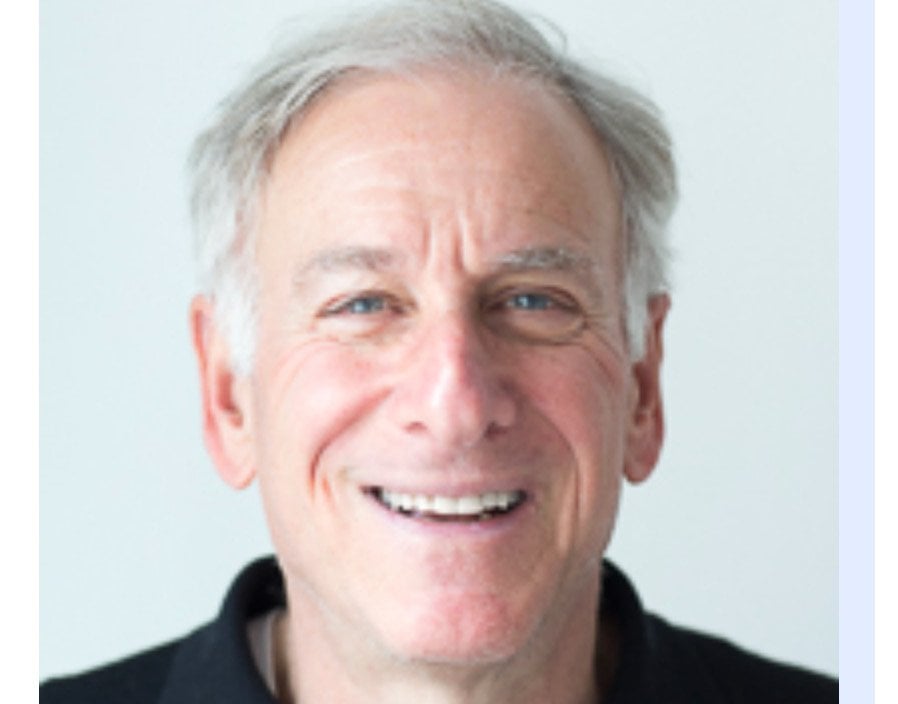“Rhode Island has a third-world food economy because we unsustainably export all but 2 percent of our agricultural and aquacultural products without value added and import 95 percent of our total food supply.” Lisa Raiola, founder of Hope & Main (H&M) in Warren, R.I., was explaining what drove her to start the culinary incubator. She added, “People with dreams of creating a food-related business come to us, and we help them actualize their vision.”
Raiola has an impressive CV including a master’s in public health, a 30-year track record in development at nonprofits concerned with distributive justice and teaching medical ethics at both Brown and Roger Williams universities. Importantly for this story, she is also a cancer survivor who partially attributes her recovery to an Ayurvedic diet.

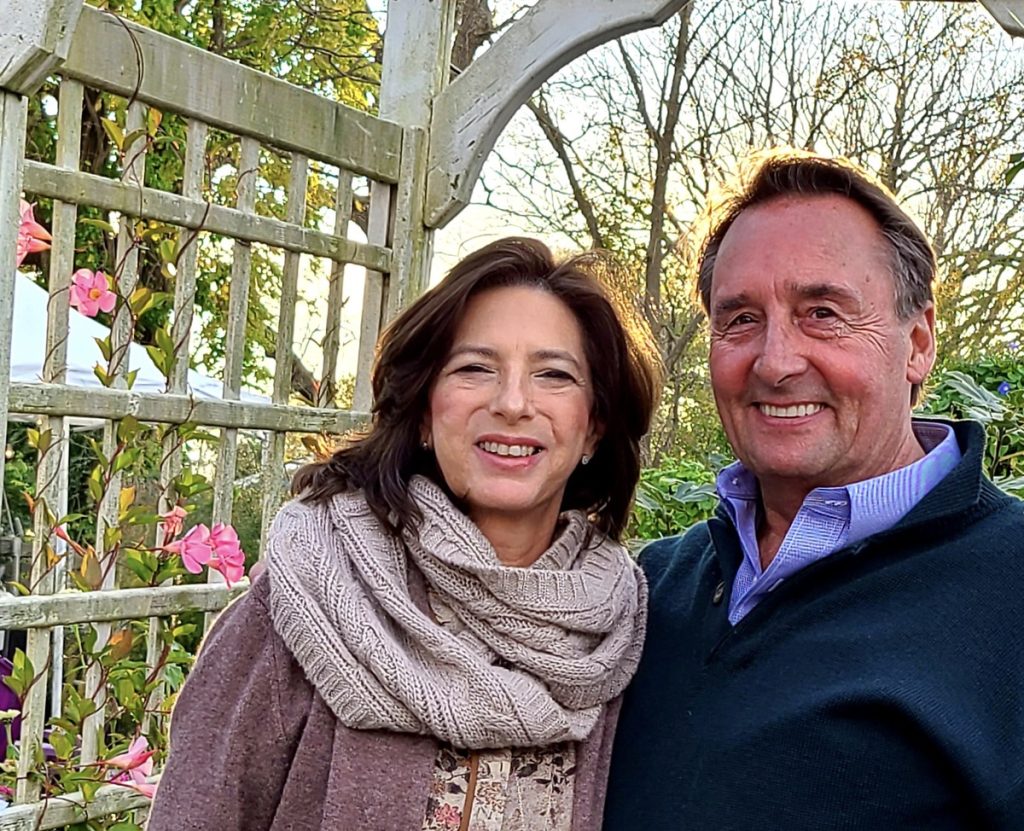
Perpetually on the move and having just returned from a business luncheon she organized in Newport, R.I., Worth was lucky enough to catch up with her at H&M, where she and her husband, Waterman Brown, were helping incubatees prepare for their weekly public market.
Brown, a Rhode Island native who traces his heritage back to the state’s founding fathers, is a retired pilot who now handles business development for H&M, but our observation from their interaction is that they have a true partnership and jointly tackle the innumerable issues arising daily.
The story of Hope & Main’s founding is so improbable and inspiring that it deserves a brief recounting.
After recovering from cancer, Raiola decided to start an Ayurvedic food delivery business to feed fellow cancer patients. Although looking for a small space, she was shown an abandoned 18,000-square-foot classic brick school building. Raiola immediately “pivoted,” changing her vision to one utilizing her development background to help emerging food entrepreneurs. With overwhelming community support, she and Brown bought the building and, after renovations, Hope & Main became a reality in 2014.

A prime motivation for Raiola’s new focus was her distress about Rhode Island’s unemployment rate, then the second highest in the country. She believed she could create a “virtuous circle”—keeping local farm and sea harvests in-state, with H&M’s transformation of the food adding value, thus increasing margins. Simultaneously, people would be employed creating and promoting these products.
Her vision has been a resounding success. To date, they have launched 300 businesses and seen an astonishing 39 percent of them thrive. Why? Because at H&M, along with providing kitchen space, they offer training in the unromantic part of having a dream—budgets, marketing, distribution and even graphics. Class attendance is mandatory because, according to Raiola, “food startups more often fail because of lack of expertise in these areas than in a disappointing product.” She added, “A corollary to this is the passion and ambition of the entrepreneurs is as important as what they’re making.”
A current success is Matt and Tami Mullins’ Newport Sea Salt Co. (with the tongue-in-cheek tag line “reef to table”), started four years ago at H&M. “Based on our culinary experiences in Italy, where people embrace local products, we knew we wanted to make salt, but that’s all we knew,” Matt said. “Hope & Main helped us with licenses, health department approval and allowed us to scale up without the prohibitive cost of buying all the equipment ourselves.” The Mullins’ sing the praises of the collegial environment that’s part of the incubator: “We all talk to and learn from each other.”
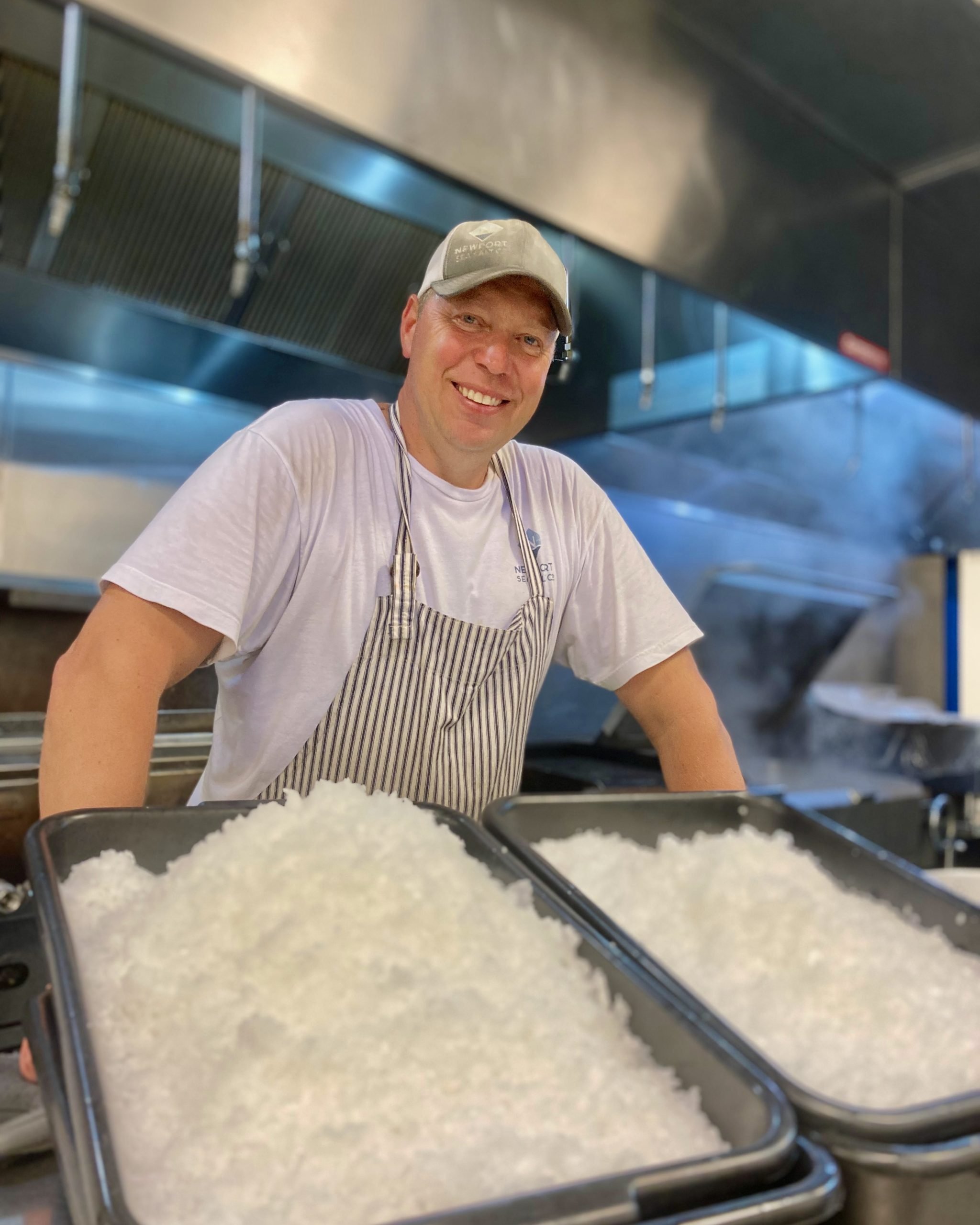
Between online orders, farmers markets, wedding favors and local hotel gift shops, the Mullins can’t keep up with demand for their exquisitely packaged sea salt. “In five years, we hope to have our own little salt works where we can operate 24 hours a day,” Matt said.
Raiola is committed to launching minority- and female-owned enterprises. Almost half of H&M’s startups are in this category. An exciting example is Chelsea Prejean’s vegan Smoky Mmm Eats. A vegan for the last six years and trained as a chemical engineer, Prejean had a long-held vision of being an entrepreneur in the food space but knew she didn’t have the business skills. “When I learned about the support they give people, I thought it would be a safe space to get started,” she said. “They took a steep learning curve and made it less steep.”
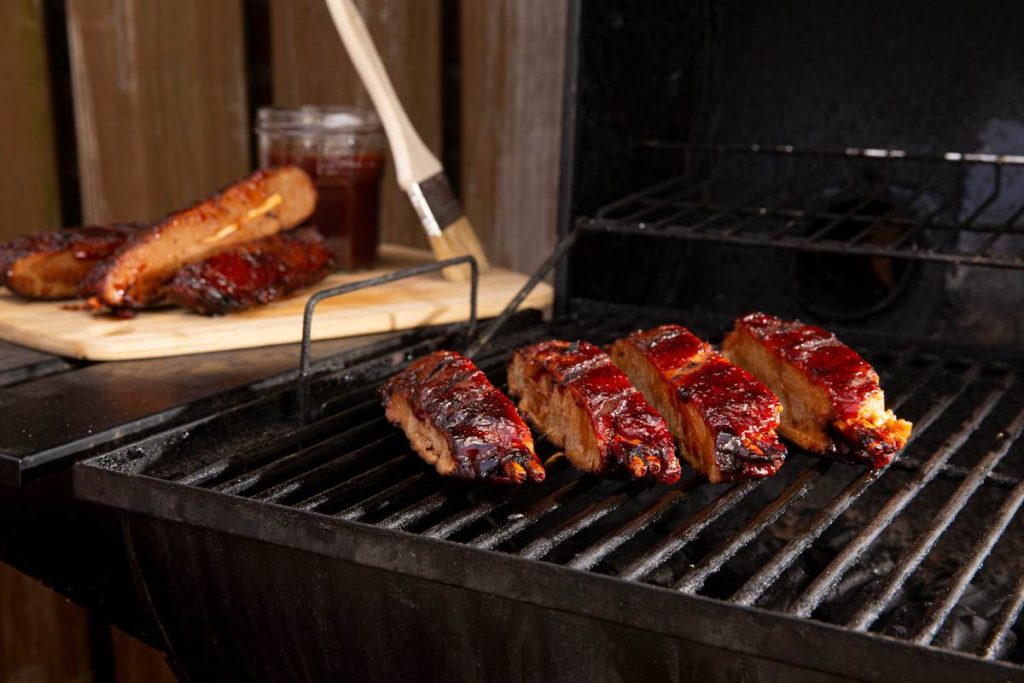
Prejean’s plant-based sausages, made from natural ingredients available in any well-stocked grocery store, are already such a success that she’s getting requests for them from around the country. Raiola’s suggestion that Smoky Mmm Eats apply for a wholesale license will help Prejean realize her goal of national distribution.
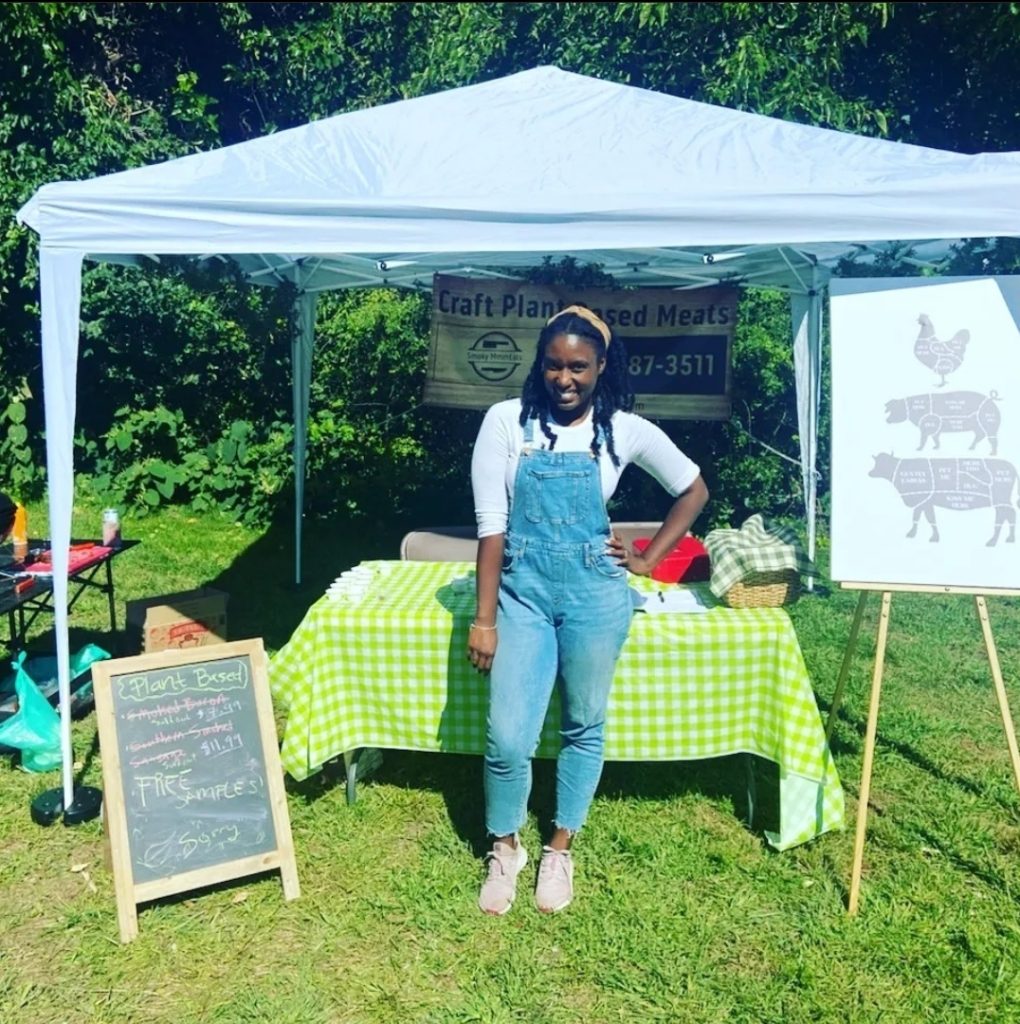
As mentioned above, Raiola’s initial vision was to help her beleaguered state. In this, she has the support of Dave’s Marketplace, whose 10 grocery stores stock many of H&M’s products. Dave’s believes that “these companies add variety and flavor to the R.I. food scene and bolster our own communities: our friends, our neighbors and our families.” For startups like Newport Sea Salt Co. and Smoky Mmm Eats, working with Dave’s allows them to scale up in a manageable way. “An order from a behemoth like Whole Foods could sink a fledgling company,” Raiola explained.
During COVID, restaurants partnered with H&M’s food equity facilitator Caitlin Mandel. They froze individual servings of prepared entrees, which were made available to those suffering from food insecurity. Funds were raised to partially cover costs, so that diners were charged a fraction of the retail value.
For those who have a brilliant food concept but don’t have the ability to execute it on their own, H&M’s fully licensed contract kitchen is happy to help. They’re currently co-packing Nice Catch fish pâté, Foss marinara sauce, chowder, teas, honey, salsa, hot sauce and more.
Looking forward, Raiola and Brown would like to open an incubator 14 miles north in Providence, R.I., which has an underserved urban population. Their other goal is to enhance access to capital to de-risk good food ideas. With a seven-year business survival of almost 40 percent, which far exceeds the national norm of 8 percent after five years, they’re sure their future incubatees will be a good investment.

